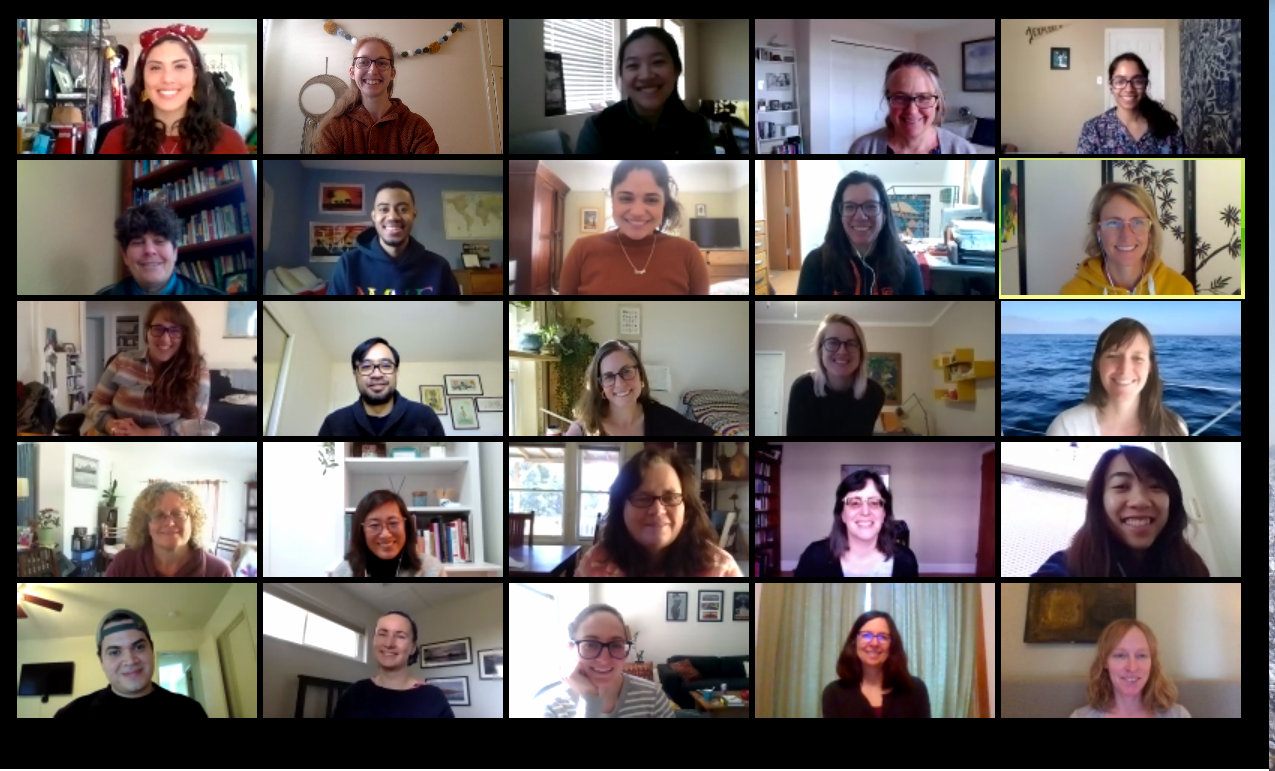I would like to start this post with a Land Acknowledgement. I am writing to you today from the East Bay in the ancestral homeland of the Chochenyo Ohlone people, who have stewarded this land throughout the generations. I welcome you to learn more about the traditional inhabitants of the land that you are on through this helpful Native Land mapping tool.
I started as the Coastal Restoration Sea Grant fellow with the California State Coastal Conservancy in March of 2020. As a fellow, I have enjoyed supporting both the San Francisco Bay Restoration Authority and the Southern California Wetlands Recovery Project. It has been fulfilling to see the collective impacts of many restoration projects across a regional scale in both northern and southern California. I very much value the connections that I have developed with wetland practitioners, managers, and other Sea Grant fellows. One of the great and unexpected benefits of being a part of Sea Grant and the wetland restoration community has been the ample opportunities to learn about environmental justice and to be a part of ongoing efforts to increase justice, equity, diversity and inclusion.
Call to action
Educate yourself. Donate. Protest. Petition. Contact your representatives. These were many of the calls to action following the racial atrocities in May of 2020. The increased awareness of police brutality against Black Americans and other institutionalized injustices experienced by Black, Indigenous, People of Color led many to rightfully call for action. These calls to action sparked a new urgency – I wanted to learn more about how I could contribute to furthering racial justice, equity, and intersectional environmentalism (a term that was new to me).
What is intersectional environmentalism?
Intersectional environmentalism is an inclusive form of environmentalism that recognizes the interconnection between people and planet, and advocates for marginalized communities that are disproportionately impacted by environmental issues. Although the term intersectional environmentalism has gained recent popularity, I want to honor that the foundational idea of the interconnection between human health and environmental health is not a new idea, but is rather rooted in the culture of the first peoples that occupied and continue to occupy the Bay Area, the Ohlone.
Coming together to learn while apart
I was not alone in my eagerness to learn. Our Sea Grant cohort had a diversity, equity, and inclusion focused discussion and decided to partake in the Urban Sustainability Director’s Network Equity Foundation Training together, which is a professional development series focused on racial equity. Two of my fellow Sea Grant fellows volunteered to facilitate the trainings and they did a fantastic job! They acted as thoughtful leaders and created a safe space for discussion and growth. I learned tools for effective community engagement and gained confidence in talking about racial injustices. The training was a unique opportunity to develop connections with my Sea Grant cohort, which had been challenging since we were not able to interact in person due to COVID-19 restrictions.

JEDI Committee meeting. I really appreciated the flexibility in my fellowship to seek out opportunities that contributed to my personal and professional development. I was able to participate in several insightful webinars addressing intersectional environmentalism and be a part of the Coastal Conservancy’s standing Justice, Equity, Diversity, and Inclusion committee, cleverly abbreviated as JEDI. I found the Together Bay Area 30 Minutes Together conversation with Vincent Medina and Louis Trevino to be a great opportunity to learn more about resilience in the Ohlone Community. I also really enjoyed the Greening Without Gentrification Webinar hosted by the State Coastal Conservancy, which discussed strategies for developing restoration projects that benefit economically disadvantaged communities and avoid unintended social and economic consequences. I highly recommend both of these webinars as helpful resources.
I am proud to be supporting the San Francisco Bay Restoration Authority and Southern California Wetlands Recovery Project through my fellowship at the State Coastal Conservancy; it is inspiring to see this intersectional philosophy adopted by restoration practitioners, who are restoring coastal places that benefit both people and planet. More information on ongoing efforts and projects can be found below:
- San Francisco Bay Restoration Authority (SFBRA) projects
- SFBRA Community Grant Program
- SFBRA Equity Recommendations Report and Advisory Committee Recommendations
- Southern California Wetlands Recovery Project (WRP) projects and Work Plan Report
- WRP Community Wetlands Restoration Grant Program
- California State Coastal Conservancy JEDI
